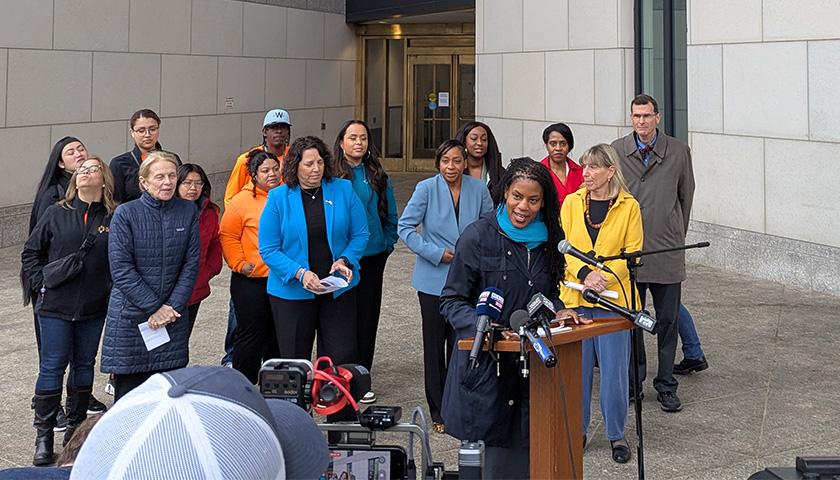Suffolk Law and Trial Court Streamline Process for Eviction Record Sealing

A groundbreaking digital tool created by Suffolk University Law School students serving in the Legal Innovation & Technology Lab will help Massachusetts residents seal certain types of eviction records (making these records not accessible to the public) under the state's landmark eviction sealing law. The law went into effect May 5, 2025.
Suffolk’s free, smart, mobile-friendly Eviction Sealing Guided Interview tool, developed in collaboration with the Massachusetts Trial Court, walks tenants step by step through the filing process. [View the tool.]
Why the tool is important
In Massachusetts' ultra-competitive rental market, even winning an eviction case can lock residents out of future housing, according to Suffolk Law fair housing experts. Both free public court databases and paid tenant screening algorithms flag any eviction filing regardless of outcome, sometimes causing landlords to reject applicants out of hand, says Quinten Steenhuis, co-director of the Suffolk's LIT Lab.
An eviction filing shows up regardless of whether the tenant won their case, paid all money owed, or the landlord dismissed the case entirely—and may dog a citizen who hasn’t had a legal or financial problem for many years.
"Some landlords as they are screening tenants don't distinguish between a tenant who won their eviction case, whose case was dismissed, or who was evicted due to a landlord’s decision to sell the property, and one who was evicted for a violation," explained Steenhuis.
Court-Approved Innovation
The tool represents the culmination of months of weekly meetings between Suffolk Law students and representatives from multiple court divisions, including District Court, Boston Municipal Court, and Housing Court. Court administrators recognized the potential for high demand when the eviction sealing law takes effect, Steenhuis said. The trial courts’ collaboration with Suffolk Law resulted in the user-friendly digital tool.
Suffolk Law and the Trial Court's E-Courts Division have collaborated on the project since December. "Together, we've built a system that protects tenant rights while streamlining court operations," Steenhuis said.
About the eviction sealing law
The eviction sealing law (Chapter 239, Section 16), part of the Affordable Homes Act signed by Governor Maura Healey, was sponsored by State Senator Lydia Edwards and Massachusetts House Majority Leader Michael Moran. The law officially gives tenants the right to petition courts to “seal” certain eviction records, meaning the eviction record will no longer be public, and thus not visible to landlords, property managers, or tenant screening companies.
The tool reflects the careful balance struck by the eviction sealing law itself, Steenhuis said, with different rules based on case types:
- For fault-based evictions (lease violations other than non-payment), tenants must wait 7 years after the case ends, with no additional fault evictions during that time, before they can petition to seal
- Cases involving criminal activity require special court hearings to determine if sealing serves the public interest.
- Cases won by tenants or that were dismissed can be sealed immediately after a short appeal period
- No-fault evictions (for example, when landlords want to renovate or sell) can also be sealed immediately after a short appeal period
- For non-payment cases where the tenant has fully paid all back rent and other amounts owed, records can be sealed immediately after payment is complete
- For non-payment cases not paid due to financial hardship, tenants must wait 4 years after the case ends, with no additional non-payment cases during that period, before they can petition to seal
How the Tool Works
The mobile-friendly guided interview:
- Takes approximately 15 minutes to complete
- Walks users step-by-step through filing a motion to seal their eviction record
- Automatically copies exact information from court records to ensure accuracy
- Files the petition electronically with a single click – no need to visit courthouses
- Works on smartphones, tablets, or computers
- The seamless integration with court systems reduces filing errors that would cause petitions to be rejected, such as inconsistent landlord company names across different records.
- The Eviction Sealing Guided Interview is available at courtformsonline.org.



